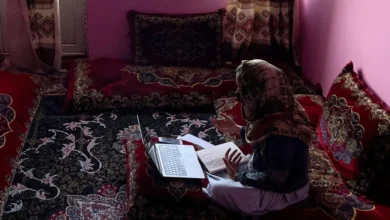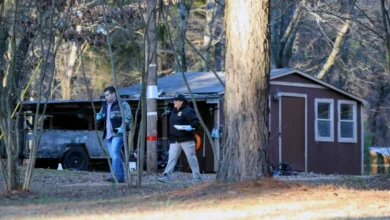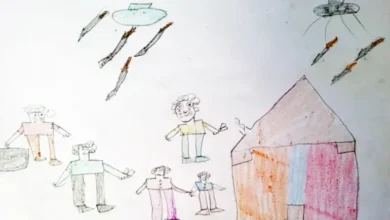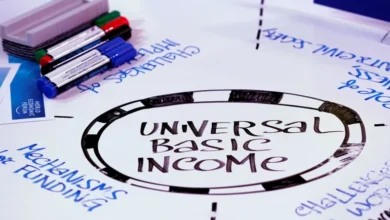Canada, Nazis and Ukraine
Andrew Mitrovica
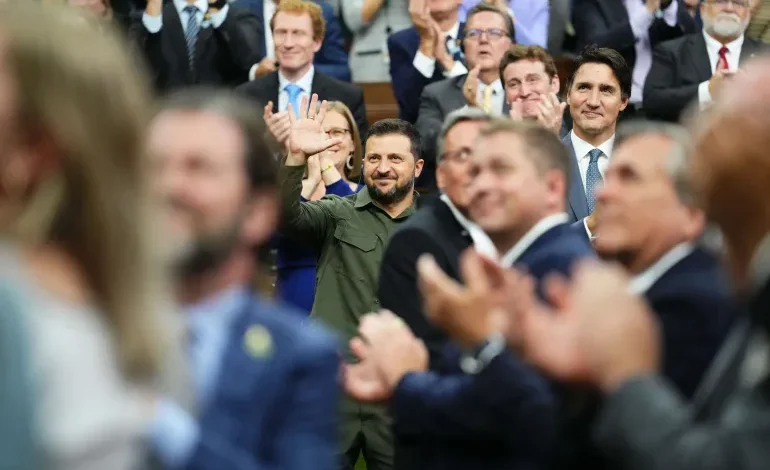
The perpetual outrage-du-jour circus otherwise known as Canada’s political discourse is, surprisingly, on pause.
By my count, it’s been about 48 hours or so since the bucolic capital, Ottawa, has been seized by a real or manufactured convulsion that has caused the country – thought by most outsiders to be the much larger, North American equivalent of dull, sedate Switzerland – to appear to have lost its senses.
What a welcomed relief it has been. If only for a moment, Canada has returned to its once reliably boring self.
This week’s big, devoid-of-any-rage news was the election of a new speaker of the House of Commons – a genteel, universally respected Liberal member of parliament, Greg Fergus, who is the first Black Canadian to hold the job.
Of course, the ex-speaker was encouraged to resign after he invited an old Nazi, Yaroslav Hunka, to the House, where the “hero” was feted with a fulsome standing ovation by every member of parliament, including a beaming prime minister and his beaming cabinet, as well as the visiting and beaming president of Ukraine, Volodymyr Zelenskyy.
Cue the understandable burst of near aneurysm-inducing fury.
Lost in the cacophony of incredulity, shock and global embarrassment was any consideration of the following questions.
First, how is it possible that so many loyal, unrepentant Nazis – in this case, a Ukrainian volunteer in the genocidal Waffen SS – live well past 90 years of age?
This maddening mystery has always stumped me and is proof, I say, that a just and merciful God does not exist.
The second, more urgent question has, predictably, not been raised, let alone addressed, by the familiar crowd of preening politicians and columnists busy, as they are, trying to outduel each other on the Nazi-outrage meter.How many Ukrainians today – in and out of uniform – would not only applaud Hunka’s Nazi collaboration and wartime “service” to liberate Ukraine from the Soviet Union’s grip, but also share his obscene belief in and fidelity to fascism?The pundits and politicians who express their unqualified devotion to Ukraine’s cause in hyperbolic missives and speeches are loath to ask or answer that query because it offends the happy narrative they remain wedded to: Ukraine brims with democracy-loving saints, while Russia is filled with dictator-adoring sinners.
So, rather than tackle a tricky, but stubborn, reality, they prefer the comfort of wilful ignorance or obfuscation designed to deny or diminish a glaring truth: there are too many Ukrainians – in and out of uniform – who would indeed celebrate Hunka as a “hero” and fight, just as he did, with Nazi insignias pinned with pride and conviction to their chests.
This is not a grotesque insult as the sophomoric scribes who, in a performative act of solidarity, affix a Ukrainian flag to their X – formerly known as Twitter – handles, would, no doubt, insist.
It is, instead, a fact that these glib apologists refuse to concede or acknowledge since it challenges their jejune, George-W-Bush-approved worldview that reads: You are either with us or against us.
In this doctrinaire construct, nuance or myth-busting details are belittled or treated with contempt if they are taken into account at all.For evidence of this let’s-tip-toe-around-the-Ukrainian-neo-Nazi-tulips attitude, I refer readers to this instructive New York Times story, published earlier this year, that I bookmarked for future use in a column.
The headline is itself, prima facie evidence of how reluctant – by institutional ethos and inclination – most Western news organisations are to admit that the Ukrainian military harbours more than a few Nazis who remind me of the now vilified Hunka.
“Nazi symbols on Ukraine’s Frontlines Highlight Thorny Issues of History,” the Times wrote with almost laughable restraint.
Yes, I agree, Ukrainian “troops’ use of patches bearing Nazi emblems” is a “thorny issue” when, with a handful of exceptions, the entire Western political and in-lock-step media establishment has lionised the Nazi-patch-wearing soldiers and their brothers- and sisters-in-arms as “freedom fighters” who share its enlightened, pluralistic values.
The piece goes on to describe how Ukrainian authorities have moved swiftly to erase from popular social media sites images of its troops openly and proudly parading notorious Nazi symbols on their uniforms lest it “fuel” Russian “propaganda” about there, you know, being Nazis in Ukraine’s military.The reporter also noted that the “West has spent a half-century trying to eliminate” such monstrous “imagery”.
Gee, I wonder why?
Could it possibly be to erase any tangible evidence that behind Russia’s supposed “propaganda” lies a morsel of disturbing, but inconvenient, honesty concerning who is doing the fighting on Ukraine’s behalf and what they stand for?
Perhaps inadvertently, the Times story provides ample ammunition – with one disingenuous caveat – to rebut the standard suggestion that these Nazi-emblem-adorning Ukrainian troops amount to “a few bad apples”.
“The iconography of these [far-right] groups, including a skull-and-crossbones patch worn by concentration camp guards and a symbol known as the Black Sun, now appears with some regularity on the uniforms of soldiers fighting on the front line, including soldiers who say the imagery symbolizes Ukrainian sovereignty and pride, not Nazism,” the Times wrote.
Buried in the Times’ meandering piece are references to two units of Ukraine’s military who have trumpeted their ultranationalist pedigree or neo-Nazi links – the Da Vinci Wolves, dubbed the nation’s “far-right warriors” and the better-known Azov regiment, which was widely saluted for “holding out during the siege of the southern city of Mariupol” in 2022.
Both volunteer units have been folded into Ukraine’s regular forces and have played a key role in rebuffing Russia’s invasion.
A measure of the esteem that these units enjoy among Ukrainians was Zelenskyy’s decision to attend the funeral for the Da Vinci Wolves’ commander – who was killed in March – where he was declared a national hero.
It’s undeniable. The noxious spirit of Yaroslav Hunka lives on in Ukraine in 2023.
There is one final, prickly question that ought to be asked given Hunka’s ugly, decades-long presence in Canada.
How many other Ukrainians who share his odious history, beliefs or sympathies have arrived in Canada before or after Prime Minister Justin Trudeau announced in March 2022 that anyone fleeing the war could live and work here for up to three years – no questions, in effect, asked.
That distinct possibly must be confronted, too.
The shameful irony is that when desperate Jewish children, women and men tried to escape the murderous pogroms and Holocaust engulfing Europe – engineered and executed by Nazis like Hunka – they were turned away.
Despite the best efforts of the cliche-addicted cognoscenti to sanitise Ukraine, we can no longer afford to turn away from mounting testimony of troubling aspects of its past and present.

